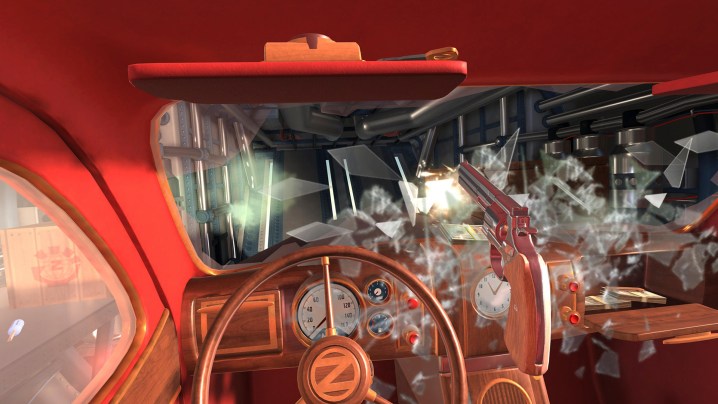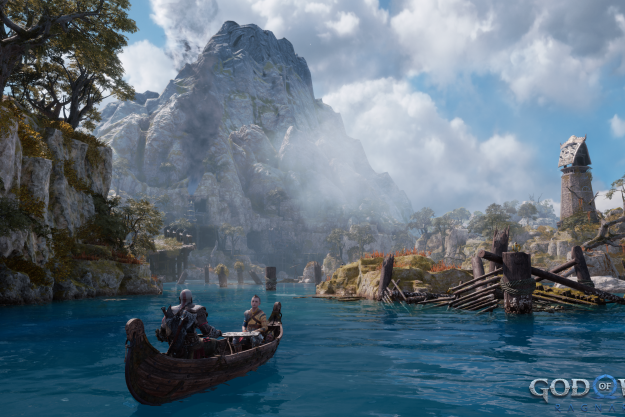Media Molecule’s Dreams is a revolutionary game for PlayStation 4 that turns nearly anyone into a game designer, courtesy of robust creation tools that only require a standard controller. The game’s community has used these tools to make original games across genres ranging from adventures to role-playing to first-person shooters. Unfortunately, alongside the wholly unique user-created games is a mountain of homages and copycats.
These range from silly Sonic-style platforms that instead feature Yoshi to complete remakes of existing game demos for P.T. and Ghost of Tsushima. Impressive as they are, they’re subject to the same copyright and trademark laws as other media. Fans shouldn’t get too attached to their favorites.
Metal Gear and Super Mario are among the most popular subjects in Dreams thus far. When approached for comment on their respective IPs’ presence in Dreams, Konami and Nintendo declined. However, Ryan Morrison, a founding partner of legal firm Morrison Rothman, says the companies would find it very easy to have the content removed.
“They wouldn’t even have to bring a lawsuit,” Morrison told Digital Trends. “Usually, they can just file a DMCA [Digital Millennium Copyright Act] takedown, and if that takedown is not complied with, they can then sue both Dreams and the person who uploaded it.”
Nintendo has already started this process. The company sent DMCA takedowns to Media Molecule parent Sony in March to get its franchise’s characters removed from the game. Mario and Yoshi were featured in popular Dreams levels, but Sony complied, and is removing infringing content when it is brought to its attention.
The DMCA was created to protect copyright holders when content infringing on their rights was hosted online. When a DMCA takedown request is filed, the material in question is removed. It’s typically up to the creator to challenge the takedown and prove their content was not in violation.
No money? Still problems
Games made in Dreams can’t be monetized, which means their creators aren’t profiting off them. However, they can still commit copyright infringement, as the games don’t fall under the nebulous umbrella of “fair use,” according to Morrison.
In most jurisdictions, fair use is just one of four factors in determining whether content violates copyright law, according to Morrison. Violations are determined in court, meaning users who create Dreams content must go through the legal process to defend against claims, which would be far too expensive.
“Fair use is not a right, it is a defense,” Morrison added. “It’s saying, ‘Yes, I infringed. However, it was OK [that] I infringed because of fair use.'”
Fair use is not a right, it is a defense.
Curiously, it’s Sony itself that could potentially run into legal issues if it were to manually remove any games infringing on its own works, such as the fan-made Ghost of Tsushima demo. DMCA takedowns are available in large part for companies incapable of policing all content manually.
If Sony were to only remove Dreams games that violated its own IP, it could be seen as selective removal, and could be argued the company should then be responsible for policing everything. Media Molecule’s current policy is to remove content when a copyright holder requests it be removed. Should it not do this, it risks incurring a lawsuit, but the very black-and-white nature of this sort of copyright infringement makes immediate removal the obvious choice.
Sony did not respond to Digital Trends’ request for comment on how it plans to deal with potential copyright violations for its own franchises.
A designer’s perspective

Major game publishers could take issue with their characters or worlds appearing in Dreams, but the designers Digital Trends spoke to have a different attitude. Schell Games’ I Expect You to Die is an extremely popular virtual reality game, and CEO Jesse Schell isn’t worried about imitators affecting support for the real version. In fact, it reminds him of how game designers like him first started, programming Dungeons & Dragons campaigns for Atari computers back in the 1980s.
Game designers Digital Trends spoke to have a much different attitude.
“When we look back 10 years from now, there will be a lot of people who built their chops in Dreams,” Schell said.
For newer independent developers, there could be homages that raise awareness of the original, similar to the way “Let’s Play” videos popularize indie games on YouTube. These are generally ignored by game publishers because, despite violating copyright, they do more good for their games than harm.
This is what Kyle Erf, director of technology at Moving Pieces, believes could work for his retro-style platformer Dodo Peak. He even considered making his own “fan” version in Dreams as a promotional tool.

Young game designers have copied major publishers’ games for decades. However, they didn’t have an outlet to share their creations similar to what Dreams offers. Erf began creating his own Mario levels using paper and a cardboard “Game Boy” as a child, but if Dreams was available then, it would have been his tool of choice. Those levels would have met the same fate as the ones Nintendo is having removed today.
Aspiring game designers would be wise to come up with their own completely original creations for Dreams, so they can build up their creation chops without their projects getting removed. However, what a litigious company like Nintendo doesn’t seem to recognize is how little impact a Mario character in a 5-minute Dreams level has on its franchise.
It is certainly well within the company’s rights to disallow this content, but players aren’t thumbing their noses at purchasing Super Mario Odyssey because of a cobbled-together Dreams clone. It might even make them more likely to go buy the real game.
Editors' Recommendations
- Sony’s cloud handheld, the PlayStation Portal, will only stream certain games
- The most exciting PlayStation Showcase trailers you shouldn’t miss
- God of War Ragnarok’s new free update is bigger than expected
- You can win cash with PlayStation’s new tournament feature. Here’s how to sign up
- Every action game should take notes from God of War Ragnarok’s skill tree


